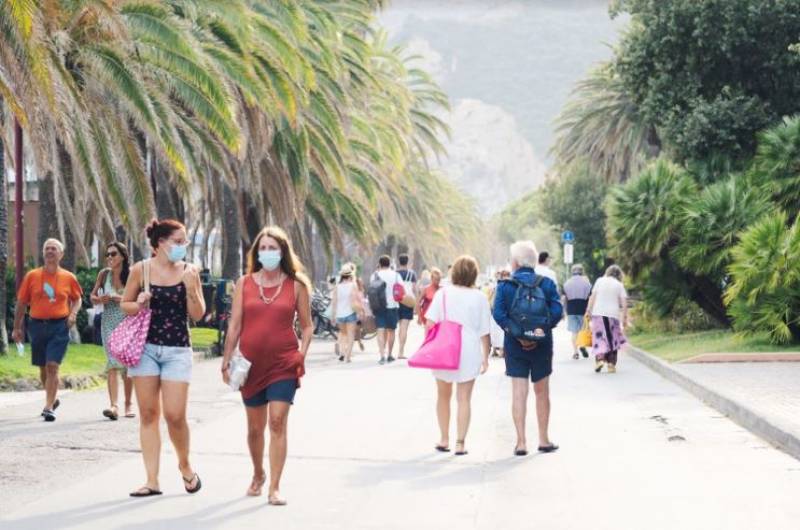Spanish News Today Editors Roundup Weekly Bulletin June 14
TOP STORIES: "Dramatic scenes of flooding in Murcia this week" and "Why Spain plants oleander trees in the middle of motorways"
The European elections are over and the UEFA Euros are just beginning. Could Spain be in for its fourth win this time around? It would certainly be a ray of sunshine after the deluge we’ve had this week. More about that below, plus climate change, airline policies and the reason why Spain plants those pink and white flowers along its autovías…
Flooding in southern and eastern Spain
It never rains but it pours, and boy did it tip it down this week. We had become so used to the dry winter conditions causing water shortages that we forgot what it was like when it rains here in southeastern Spain.
Well, we got a pretty violent reminder when the streets of our cities and towns turned into Ramblas due to buckets of rain sheeting down. The Ramblas here are water overflow channels that most of the year are dry as a bone and fairly non-descript, but which are designed to divert water away from urban areas when it rains heavily. Most of them did their job right this week, helping to avoid flooding and disaster for homeowners.
But for every success story, there was a
video to show the effects of the storms when the infrastructure just wasn’t able to deal with the torrents of water, drains backing up and flooding streets and even shopping centres.
Between Saturday last and this Wednesday just gone, emergency services were called out to hundreds of rescues, saving people from cars that had become stuck in the middle of what were once ordinary streets but by then resembled the Ganges.
On the RM-19 road between Sucina and Murcia, one driver got stuck in the mud and was rescued by firefighters.
The other victim when it rains like this is the Mar Menor. Once again, the flood water streamed into the lagoon from the streets of La Manga as well as fields around Los Alcázares and Torre Pacheco, bringing with it mud, sludge and earth contaminated with nitrate-laden pesticides that will alter the delicate chemical balance of the ecosystem and have disastrous consequences after all the good work to help heal it recently.
The Segura River, also, showed signs of environmental stress. Not for the first time, the heavy rain caused a white, foamy substance to form on the surface of the water as the river passes through Murcia city centre, prompting local conservationists to demand (again, not for the first time) an explanation as to why this scum appears, something which they put down to the “poor quality” of the river.
According to the weather stations, there was a point on Wednesday when rainfall in the Murcia area exceeded 50 litres per square metre in the space of just one hour. In fact, there was a 20-minute window where it rained more than the normal average for the summer as a whole, and on Tuesday
Alicante had its wettest day since September 15 last year. There were also some power cuts in Alcoy in Alicante due to the storm, which also brought with it hailstones that damaged crops and, earlier in the week, strong winds that felled trees and caused blockages on the roads.
The Airport at Palma de Mallorca was severely affected, looking more like a swimming pool on Tuesday. Hundreds of flights had to be cancelled or diverted as water seeped through the roof of the terminal and left the runway totally waterlogged, grounding planes but thankfully not turning them into boats.
There have been previous years when the flooding in Spain has claimed human lives, but thankfully that was not the case this week, though there was plenty of material and psychological damage for those worst affected.
The saving grace of all this rain and destruction must surely be that it will have given us extra water reserves ready for the summer and helped to dampen the ground somewhat in the forest and countryside areas to mitigate the chance of wildfires spreading too quickly.
Is Europe in for a new Ice Age in the next 10 years?
You might want to brace yourself for some chilling news. Scientists are warning about a potential big freeze in Europe, and it could happen sooner than you think. According to a study from the University of Copenhagen and the world-renowned Niels Bohr Institute in Norway, published in the science journal ‘Nature Communications’,
there’s a chance we could be heading towards an Ice Age in the next decade.
This grim prediction is down to what’s called the North Atlantic Meridional Overturning Circulation (AMOC) which is like a giant conveyor belt in the ocean. It brings warm water from the tropics up to the North Atlantic, where it cools down, becomes more dense and sinks, then heads back south into the depths.
This whole process keeps Europe and other regions nice and toasty, and it also gives a helping hand to warmer areas of the planet. Not to mention, it makes sure the seabed gets a good dose of oxygen so that all kinds of diverse ocean life can thrive.
But here’s the problem. With global temperatures rising and glaciers melting, especially in Greenland, a bunch of fresh water is making its way into the North Atlantic. Now, salty water is heavier, so it sinks more easily. But freshwater? Not so much. So, all that fresh water is messing with the AMOC, slowing it down or even stopping it from doing its job.
Professor Stefan Rahmstorf from the Potsdam Institute for Climate Impact Research is worried that the AMOC might collapse in the 2030s, giving Europe a serious case of the chills, kind of like what happened during the Little Ice Age between the 14th and 19th centuries.
If this happens, it’s not just the climate that will take a hit. We’re talking about potential problems for agriculture, water supply, infrastructure and the economy. Imagine Spain and the rest of Europe becoming way too cold to live in. Cities that aren’t used to snow and ice would have to figure out how to deal with it.
The folks at the Niels Bohr Institute and the University of Copenhagen are pretty concerned. They’ve used these fancy early warning signals to predict that the AMOC might collapse between 2025 and 2095 if we don’t get our act together with emissions and global warming.
The AMOC has a history of collapsing, and when it does, it messes with the global climate in a big way.
So, what can we do? Well, tackling climate change head-on and adapting to its effects will be crucial to ensuring a sustainable and liveable future for the European continent and the entire world.
Why Spain plants oleander trees in the middle of motorways
For the time being, though, southern Spain is characterised by its dry, arid landscape, that is even desert-like in many places. So it can come as a surprise to find a riot of colour along the region’s busiest motorways and dual carriageways. This pop of brightness is thanks to oleander plants, their usually bright pink and white flowers packed in tight formation along the central median.
But these beautiful trees are far more than mere decoration, and actually play a
vital role in protecting motorists on some of Spain highest-capacity roads. You see, oleanders are very tough customers indeed, and when they’re planted close together they can actually prevent an out of control vehicle from careening through the central divide and into the opposite lane.
They also tend to be very tall, so their leaves and flowers will minimise the dazzle from headlights at night. To a lesser extent, these trees can also help dull traffic noise.
What’s more, oleanders are resilient. They are very happy in infertile soil and can easily tolerate the dry, arid conditions often experienced in the south of Spain.
Thanks to these wonderful diverse plants and a number of other measures introduced by the General Directorate of Traffic (DGT) over the years, Spain is now one of the safest countries in Europe to drive in, ranked tenth by the European Transport Safety Council.
Bulky baggage
With dozens of world-renowned courses, Spain is a true golf paradise, and many holidaymakers plan on getting in a round or two during their trip. These days, more and more people choose to bring their own clubs with them rather than hiring them on the costas, simply out of preference for using their own gear.
But golf clubs, along with other oversized or excess luggage like musical instruments and sporting equipment such as bikes and surf boards, obviously don’t fit in conventional luggage, and so are subject to their own rules, and often additional charges to boot.
Iberia
If you’re bringing sports gear, make sure it’s all packaged up according to their rules so you don’t strike out at check-in. Fees for this stuff range from 35 to 135 euros, and you can get all the details on their website. The weight limit is usually 23 kilos, and if your gear is heavier, you might have to shell out some extra euros, up to a max of 32 kilos.
For musical instruments, you’ve got options. Something small like a flute or violin can be your carry-on, as long as it’s not bigger than 30x120x38 cm. If you’ve got a bigger instrument, you can buy it its own seat, but it’ll cost you, and you’ll need to give the airline a heads-up beforehand. Or, you can check it in, as long as it’s no bigger than 190x75x65 cm and weighs less than 23 kg.
Ryanair
With Ryanair, you can bring your sports gear or musical instrument on board, as long as it fits within the regular hand luggage limits. If it’s a bit on the chunky side, you can pay for an extra seat. Or, you can check it in and pay a fee. Just keep in mind that if your gear weighs more than 20 kg (or 30 kg for bikes), you might have to shell out some extra dough.
Air Europa
For sports enthusiasts, Air Europe says that transporting your gear is all about space availability. So, it’s a bit of a game-time decision. You’ll likely have to pay an extra fee (between 40 and 200 euros), and your gear needs to be in one package, weighing no more than 23 kg. If you want to go up to 32 kg, you can, but it’ll cost extra.
Vueling
Vueling wants you to make sure your sports gear or musical instrument is nicely packaged so it can travel safely. Any excess baggage will cost more, and you can add that when you book or afterwards.
The weight limit is 32 kg, and the size can’t be more than 2.70 metres. The price depends on what you’re bringing, so check their website for details.
So, there you have it. Travelling with your golf clubs or other sports and music gear is totally doable, but just make sure you know the rules and fees beforehand.
Murcia
And what a thriller it was. Alcaraz faced off against Alexander Zverev in a heart-pounding five-set duel that lasted more than four hours. Talk about a battle of endurance and mental fortitude for the young prodigy.
With this victory, Alcaraz joins an elite club of just 10 Spaniards, male or female, who have lifted the prestigious Musketeers Cup at this renowned clay-court tournament. It’s a huge deal, and it solidifies his place in tennis history.

Before this win, Alcaraz had already made waves by claiming Grand Slam titles at the 2022 US Open (on a hard surface) and Wimbledon 2023 (on grass). This achievement earned him the title of the youngest male player ever to win three Grand Slams on three different types of courts. He even broke the record previously held by his fellow countryman and tennis legend, Rafael Nadal.
This historic win cements Alcaraz’s status as a force to be reckoned with in the world of professional tennis. He’s following in the footsteps of his compatriot Nadal, and we can’t wait to see what other records he’ll break and titles he’ll claim.
The two sides were battling it out for the title of league champions and underdogs Murcia put up a good fight, forcing Real Madrid to come back from behind to win. Although they didn’t take home the trophy, this has still been the best ever season for UCAM Murcia in its almost 40 years in existence as a club.
Each year, Condé Nast Traveller searches for the crème de la crème of Spanish beaches, and this year’s finalists include some real stunners. Previous winners have included the likes of Playa de Bolonia in Cádiz (2023), the breathtaking Valdevaqueros in Cádiz (2021), the serene San Antonio del Mar in Asturias (2020) and the exotic Papagayo in Lanzarote (2019). So, you know the bar is set pretty high.
Calblanque, representing the Region of Murcia, has been described by voters as one of Murcia’s “hidden paradises” and it’s easy to see why. With its expansive sandy shore and tranquil waters, Calblanque is a nature lover’s dream. Nestled within the Calblanque Natural Park, the beach is surrounded by arid mountains and native flora and fauna, creating an atmosphere of untouched wilderness. It’s the perfect spot for those seeking privacy and a break from the hustle and bustle.
The other finalists for the Best Beach in Spain 2024 award are:
- Playa de Valdevaqueros (Cádiz)
- Cala Saona (Formentera)
- Playa de Famara (Lanzarote)
- Playa de Los Locos (Cantabria)
- Cala Fonda (Tarragona)
- Playa Norte (Castellón)
- Las Catedrales Beach (Lugo)
- Zarautz Beach (Guipúzcoa)
- Poo Beach (Llanes)
- Calblanque Beach (Murcia)
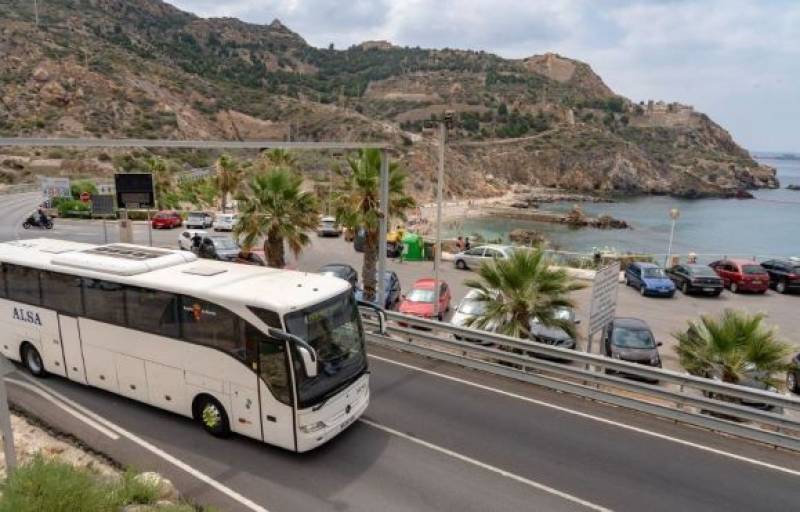
For another couple of popular beaches in Cartagena municipality, the
summer beach bus service is starting up once again. Beginning this Friday June 14 and running every day of the week until the end of August, the Beach Bus connects the Paseo Alfonso XIII in Cartagena city centre with the beaches of Cala Cortina and El Portús.
The beach buses leave every hour and a half or so, and are a fantastic alternative to driving.
On the Camposol urbanisation, a
new self-service laundromat is opening this coming Tuesday, June 17. Going by the name of ‘La Colada’ (Spanish for a load of washing), the laundromat will be located in Los Palacios (Camposol Sector A), just behind the Blue Med Invest office. There have been laundromats on the urbanisation before, but Sector A has never got one to stick, so this new arrival is a great boon for the community.
Back to sports, and tonight is obviously the opening game of the Euros with hosts Germany playing Scotland in the first of the group matches. If you’re looking for somewhere to watch all the action from the Euros, the
Bar/Restaurant at Club MMGR is showing every single game live on their TVs inside and outside on the terrace, so you can watch the footy with a cold beer wherever you’re most comfortable. Oh, and they’ve got a swimming pool if it gets really hot.
Spain
Some people are fond of saying that without foreign tourists, especially the British who make up the majority of visitors from overseas, Spain would be ruined. It’s a gross oversimplification, of course, but the Bank of Spain itself reckons it’s not far from the truth.
The economists initially predicted a modest 0.4% GDP growth for the first quarter of this year but ended up with a solid 0.7%, according to a recent report, and the secret ingredient was spending by foreign tourists, which made up a full 0.9% of GDP growth. In other words,
without the tourists, Spain’s economy would have shrunk by 0.2%. Tourists have been flocking in, spending more and keeping the economy lively, so you’d think a big ‘gracias’ would be in order to all those holidaymakers.
Not so, as a separate survey found that
nearly half of all Spaniards think there are just too many tourists crowding their beloved cities. The survey shows that 45% want the government to limit the number of visitors, especially in protected natural areas. In hotspots like Andalusia and Catalonia, locals are even more vocal, with 50% wanting a halt on new tourist accommodations. Over-tourism has its drawbacks – long queues, crowded sites and overpriced tapas, and the Spaniards themselves are apparently starting to look for quieter, off-the-beaten-path destinations to enjoy some peace.
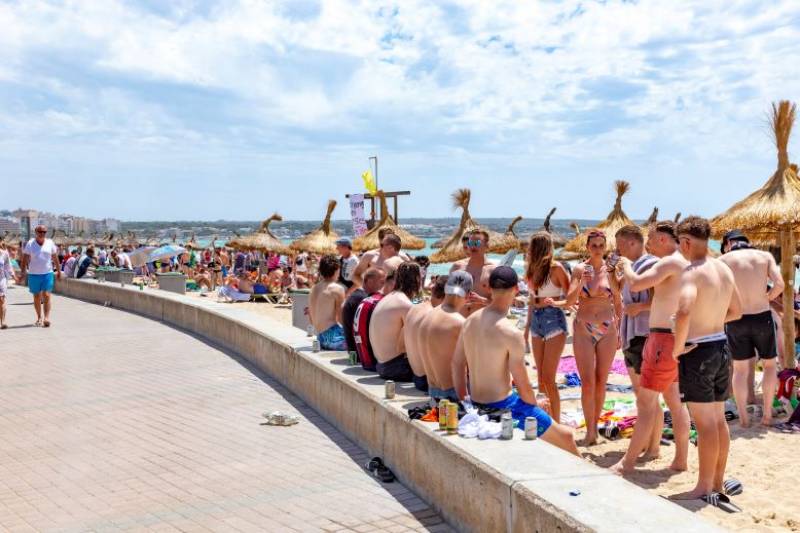
They’re also probably not too chuffed that part of their country’s fame amongst the foreigners is as a party and drinking capital where it’s alright to cheat on your other half. This is the news that
Magaluf in Mallorca has been crowned as the ‘European capital of infidelities’ by UK married dating website Illicit Encounters. After surveyed 2,000 users in the UK, they found that Magaluf is the top place where people are most likely to cheat on their partner. It seems the sun, booze and feeling of freedom make it a hotspot for holiday hijinks.
A holiday to Mallorca took a sharp turn in another way for one British tourist who decided to take a unique approach to robbery this week by
using a hole punch – the kind you use on leather and wood – to hold up a taxi driver in the middle of a packed street.
Things escalated quickly when the 48-year-old Briton then jumped on a nearby bus that was full of passengers. But the bus driver was a total hero, quickly getting all the passengers to safety and locking the crazy tourist inside. He then called the cops, and the scene turned into a real-life TV drama.
When the police arrived, the man, who was locked in the bus, threatened to stab himself with the hole punch if they came any closer. He even held it to his own neck. Thankfully, the officers kept their cool and managed to convince the man to drop the hole punch, and they handcuffed him.
According to the National Police spokesperson, the British man was arrested on suspicion of robbery and intimidation. He had apparently climbed into a taxi and was immediately hostile, which led the driver to refuse the ride and ask him to get out. This only made the tourist angrier, and that’s when he whipped out the hole punch and started waving it around.
The taxi driver, thinking on his feet, fled the cab, but not before the tourist snatched his phone. The hole-punch-wielding man then made his way to a bus stop in Plaza de la Reina, where he boarded a bus with other passengers. But the bus driver, realising something was very wrong, evacuated the bus and locked the man inside until the police arrived.
So, Spain’s relationship with tourism is a bit of a rollercoaster right now – it fuels the economy and brings in the fun but also needs a bit of managing to keep everyone respectful of each other and happy.
Alicante
The sun-soaked beaches of Alicante province witnessed a tragic start to the summer, claiming a life almost every single day of June so far. This devastating toll continued last Friday June 7 in Guardamar del Segura, when treacherous waves took the lives of two courageous swimmers, including a 52-year-old British holidaymaker.
The incident unfolded at La Roqueta beach on the Orihuela Costa. The British man, displaying remarkable bravery,
rushed into the turbulent waters to rescue two children, aged six and seven, who were struggling against strong currents. A 46-year-old Polish man also swam to their aid, but both rescuers sadly perished.
The harrowing event took a further toll as two other beachgoers in their 20s, a man and a woman, faced breathing difficulties after attempting to assist in the rescue mission. They were promptly taken to the hospital, and fortunately, their conditions are not considered life-threatening. Thankfully, the two children were eventually brought to safety.
However, the tragedy continued into the weekend, as this Guardamar del Segura beach witnessed another fatality on Saturday June 8. A 77-year-old man succumbed to the surf, emphasizing the urgent need for lifeguard services, which are yet to be implemented for the summer season.
Guardamar del Segura mayor Jose Luis Saez said: “Three deaths from drowning in the last 24 hours at Guardamar’s beaches.
“The prevailing sea conditions are very dangerous, with strong dragging currents making bathing unadvisable.”
Along with another victim, a woman from Lithuania aged 31, he had to be taken to Torrevieja hospital for treatment, while the third victim, a 42-year-old Spanish man, had to be airlifted to La Fe hospital in Valencia suffering from serious burns.
Police are investigating as to why the explosion occurred inside the recreational boat, but it seems to have been just a terrible accident.
After the summer is over, from the end of October, there will be a brand-new easyJet flight route operating from Alicante Airport. Just a couple of months after easyJet opened a new base at Alicante-Elche Miguel Hernández Airport, the UK low-cost airline announced the launch of this
new flight route between Alicante and the city of Naples in Italy, which will have two flights a week going in each direction.
It is one of the 60 new routes that easyJet has launched worldwide,
nine of which are in Spain starting for the 2024 winter season. As well as the Naples-Alicante connection, there will be international flights between Fuerteventura, Lanzarote, Madrid and Barcelona, connecting them with destinations in the United Kingdom, France, Italy and Austria.
Andalucía

Johnny Morrissey, a suspected leader of the notorious Kinahan cartel in Ireland, has been
released from a Málaga jail after posting a substantial bail amount of 60,000 euros.
Morrissey, who was arrested in September 2022, faced allegations of money laundering for the Irish drug gang, adding to the growing list of cartel-linked arrests in Spain that have resulted in releases without charges.
Morrissey, known as ‘Johnny Cash’ in his hometown of Kinsale due to his notorious tax evasion, had evaded authorities for years. However, his arrest in 2022 was a significant joint operation involving six different police forces, including the Spanish Guardia Civil, An Garda Síochána and the US Drug Enforcement Agency. Spanish police estimated that the money-laundering network Morrissey was allegedly part of had the capacity to handle a staggering 350,000 euros per day, totalling 200 million euros in the 18 months before his arrest.
The 63-year-old’s release comes with stringent conditions. He has been mandated to surrender his passport and agree to an international travel ban, ensuring he remains within the reach of the law.
Morrissey’s connections to the Kinahan cartel are deeply concerning. In 2022, he was sanctioned by the US Department of the Treasury, alongside cartel founder Christy Kinahan and his sons Daniel and Christopher Jr. Morrissey’s proximity to cartel leader Daniel Kinahan was highlighted, as he was invited to his wedding in Dubai in 2017.
US authorities described Morrissey as a pivotal member of the cartel, labelling him an ‘enforcer’ and accusing him of facilitating international drug shipments from South America while also engaging in money laundering activities. Their investigation further implicated Morrissey as the owner or controller of luxury beverage brand Nero Drinks Company Ltd., which has now been added to the US sanctions list.
Morrissey’s release does not mark the end of his legal troubles. He remains under investigation by a court in Marbella on suspicion of money laundering and membership in a criminal gang.
We finish this week with the return of another unwelcome visitor. You thought it was gone forever but, four full years after we went into lockdown and starting panic buying loo rolls, there has been a
spike in the number of Covid-19 cases across Spain as a whole over the last month or so, and particularly in Andalucía.
In the last week alone, the number of active cases reported in the community tripled, and, while most people have merely had cold- or flu-like symptoms as a result, there were 500 people admitted to hospital suffering from coronavirus. The incidence rate stands at 131 cases per 100,000 people and the Andalusian Regional Ministry of Health and Consumer Affairs is already taking action against this surge in cases to try and cut it off at the root before they have to reintroduce mandatory mask-wearing rules again.
They are urging people to “protect themselves and others,” especially those vulnerable people who are in at-risk groups. They also remind people that the number of cases normally increases “when there are large concentrations of people”, which are common during the summer, what with festivals, people packed into planes and other transport, masses crowding on the beach, etc.
What do you think? Time to dig out the facemask again? Fancy a summer booster jab?
You may have missed…
- Corvera Airport loses passengers in May.
284,686 passengers have used Corvera Airport so far this year, an increase of 5.2% on the same period in 2023. And yet, the number of passengers who used the airport last month fell by 1.8%. This is why…
- Meet the Costa Blanca bikers raising funds for Alzheimer’s charity.
The Costa Blanca Rawhiders Motorcycle Club visited the Torrevieja Alzheimer’s Association to donate much-needed funds for new staff uniforms.
- Camera Club shows how it’s done at Los Alcázares Urban Art Festival.
The Los Alcázares Digital Camera Club (LADCC) were out and about recently at the International Urban Art Festival in Los Alcázares and Los Narejos. Over the course of the 3-day event, which brought many renowned street artists from across the world to this part of Murcia, LADCC documented in photos the way in which these mega murals come to life.
- Jailed Murcia Buddhist leader regains access to frozen bank accounts.
In a recent development in a cult case that has shocked the Region of Murcia, the Court has ordered the unblocking of the accounts belonging to José Manuel C., the self-proclaimed Buddhist leader of Abanilla known as ‘Total Transcendence’ to his followers. The 50-year-old Buddhist was arrested last November for allegedly drugging his followers.
- In a nutshell: EU election results and Spain.
This weekend, Europe went to the polls to elect MEPs to the European Parliament. Across Europe, rightwing populists made gains as expected but overall the centre ground won out, while in Spain the ways voters cast their ballots reaffirmed the country’s commitment to the two major parties, the centre-right PP and (to a lesser extent) the centre-left PSOE.
What a week. Next time, as the Spanish say, ¡más y mejor!
¡Adiós!
article_detail

|



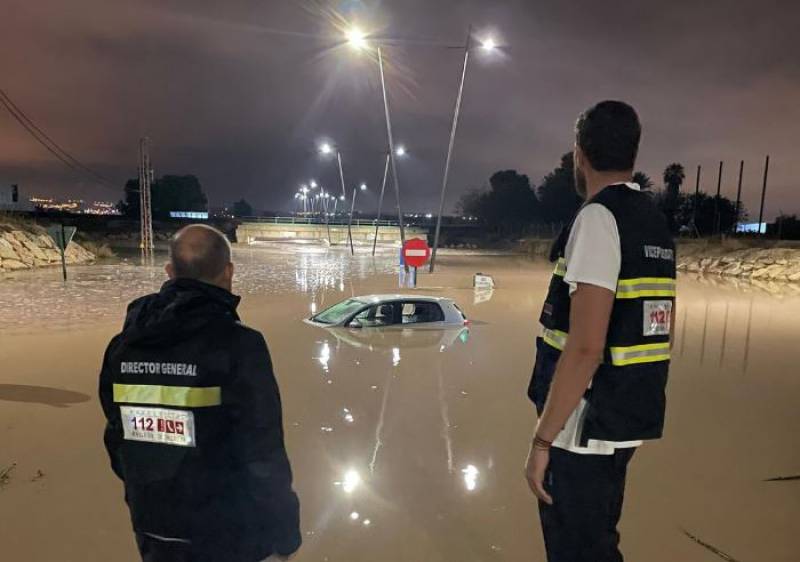
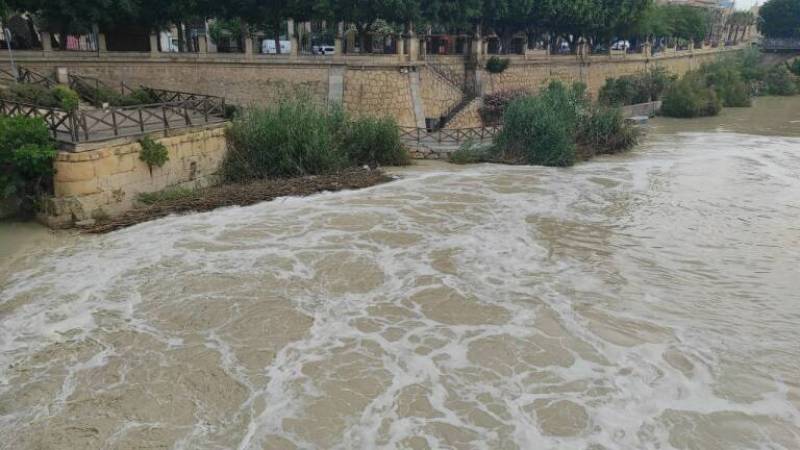
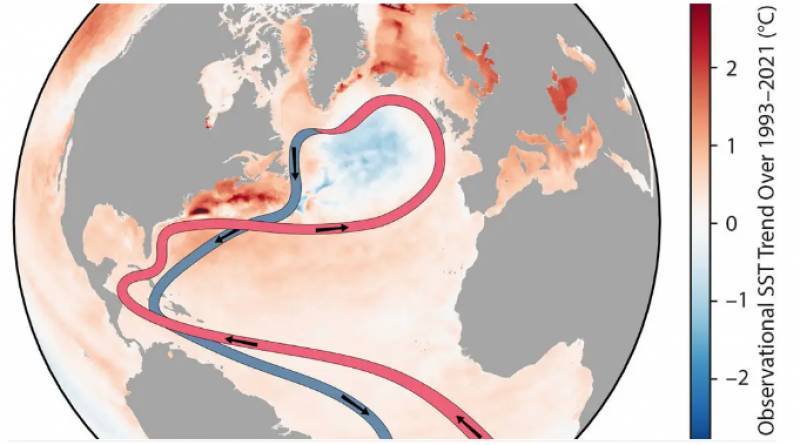
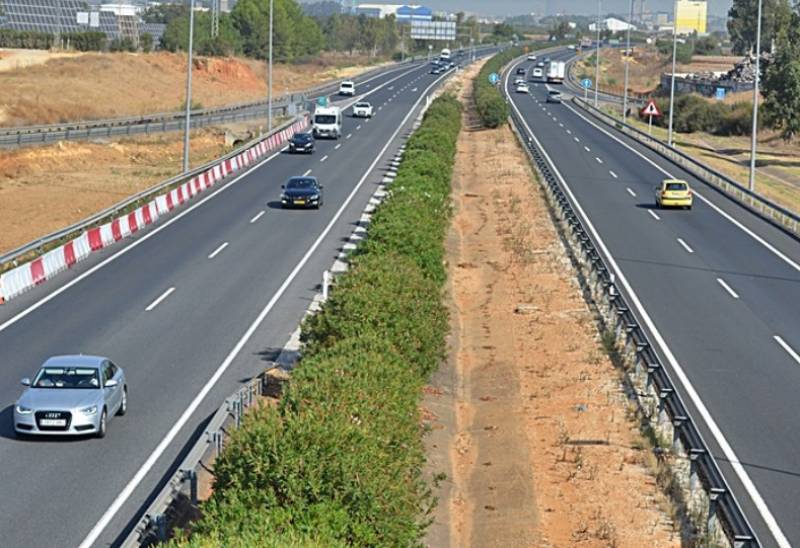
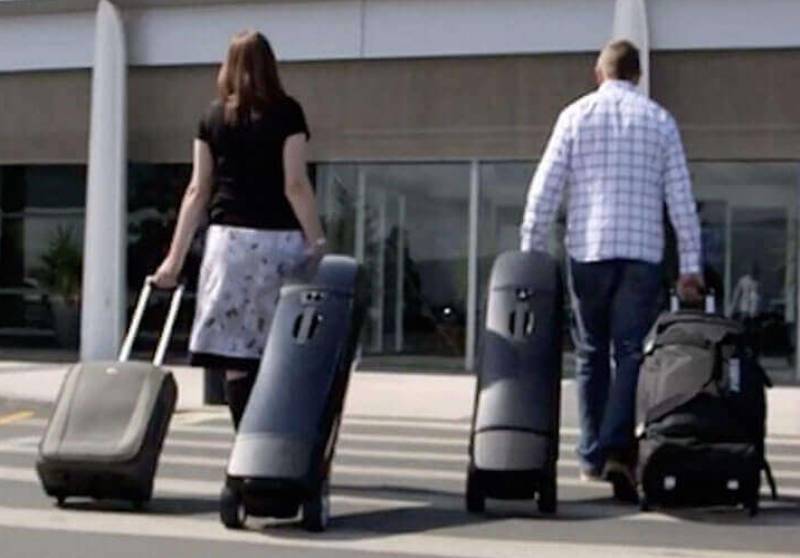
 Before this win, Alcaraz had already made waves by claiming Grand Slam titles at the 2022 US Open (on a hard surface) and Wimbledon 2023 (on grass). This achievement earned him the title of the youngest male player ever to win three Grand Slams on three different types of courts. He even broke the record previously held by his fellow countryman and tennis legend, Rafael Nadal.
Before this win, Alcaraz had already made waves by claiming Grand Slam titles at the 2022 US Open (on a hard surface) and Wimbledon 2023 (on grass). This achievement earned him the title of the youngest male player ever to win three Grand Slams on three different types of courts. He even broke the record previously held by his fellow countryman and tennis legend, Rafael Nadal. For another couple of popular beaches in Cartagena municipality, the summer beach bus service is starting up once again. Beginning this Friday June 14 and running every day of the week until the end of August, the Beach Bus connects the Paseo Alfonso XIII in Cartagena city centre with the beaches of Cala Cortina and El Portús.
For another couple of popular beaches in Cartagena municipality, the summer beach bus service is starting up once again. Beginning this Friday June 14 and running every day of the week until the end of August, the Beach Bus connects the Paseo Alfonso XIII in Cartagena city centre with the beaches of Cala Cortina and El Portús.
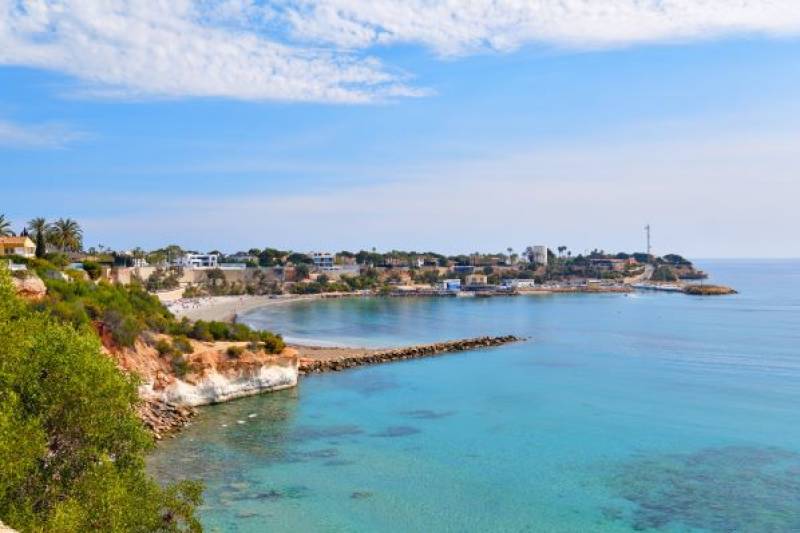 Another British man, aged 38, was one of three people injured in Orihuela Costa when a boat moored in the port of Cabo Roig exploded without warning.
Another British man, aged 38, was one of three people injured in Orihuela Costa when a boat moored in the port of Cabo Roig exploded without warning. Johnny Morrissey, a suspected leader of the notorious Kinahan cartel in Ireland, has been released from a Málaga jail after posting a substantial bail amount of 60,000 euros.
Johnny Morrissey, a suspected leader of the notorious Kinahan cartel in Ireland, has been released from a Málaga jail after posting a substantial bail amount of 60,000 euros.